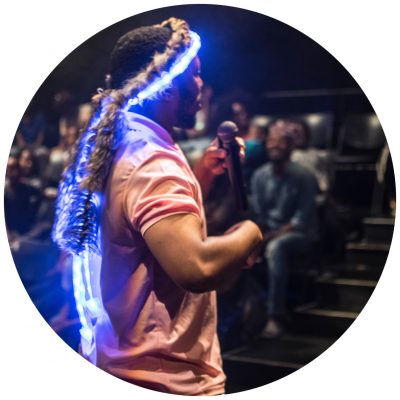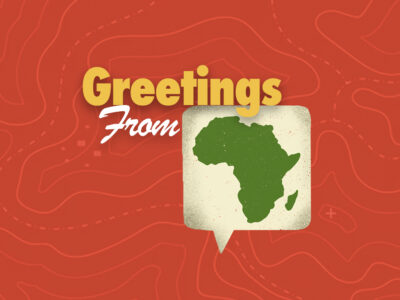
Photo provided by Siya Masuku.
In 2019 as part of a social media campaign to celebrate linguistic diversity online, African language activists and advocates will be taking turns managing the @DigiAfricanLang Twitter account to share their experiences with the revitalization and promotion of African languages. This profile post is about Siya Masuku (@siyamasuku) and what he plans to discuss during his week as host.
Rising Voices: Please tell us about yourself.
Soweto-born Siya Masuku ran a 113% successful online crowdfunding campaign in July and August 2016 to launch his own publishing platform, Siyafunda Online. The alphabet book, Siyafunda: isiZulu (2016), has colourful images of lino printed animals. It is available with English translations in print and digital formats.
Siya has collaborated with Book Dash South Africa to illustrate children’s books; UDaisy Omangalisayo (2015) and Isitsha Samakhekhe Masiwe (2016). He recently collaborated with Puku Children’s Literature Foundation to illustrate and design the books, Mosidi (2019) and The Wolf and the Fox (2019).
A recipient of the David Koloane Arts Writing Award (2017), Siya is a self-published comics writer and illustrator of uNjabulo: emkhathini (2017) and uLanga (2019).
RV: What is the current status of your language on the internet and offline?
Zulu, a culture of the Zulu people (amaZulu) should not be confused with isiZulu (the language). There are between 10 – 12 million isiZulu speakers in Southern Africa. IsiZulu is the most widely spoken home language in South Africa. It became one of South Africa’s 11 official languages in 1994. There are at least 35 indigenous languages in South Africa.
English remains the more commonly used language across the internet. However, platforms which offer services by isiZulu tutors, courses and programs are accessible online. Siyafunda Online is one such platform.
RV: On what topics do you plan to focus during the week that you’ll manage the @DigiAfricanLang Twitter account?
Some of the topics in mind
- Narratives – no longer telling stories about hut dwellers and cattle herders, it’s now stories about tech savvy township and suburban people
- Pronunciation as the primary way to learn a language
- Phonics – using alliteration, assonance and repetition to learn isiZulu
- Language nuances – clan names, metaphors, ideophones
- Innovation – provocative artwork, new stories (untranslated), learning whilst having fun (launches, magic, poetry), improvising (motion comics, gaming)
- Vocabulary – new words to learn. Some are borrowed based on how we exchange information today
- Animal vs Human languages in comics – “humans speaking human; animals speaking animal”
- Message – stories which continuously ask questions, probing the reader to conclude or do more research, unsung heroes, mischief, dreaming, curiosity, parenting, friendship, caring, love, hope
RV: What are the main motivations for your digital activism for your language? What are your hopes and dreams for your language?
I hope indigenous languages continue to evolve. They are forced to, regardless, in order to stay alive. It is when we shift our perspective from a preservation-based approach to one which is associated with boldness and curiousness that the language and its people open up to new possibilities.
IsiZulu has nuances other languages cannot interpret. Let us let it take shape naturally in a single story through print, song, performance art, gaming, augmented reality and other mediums of modern communication.

